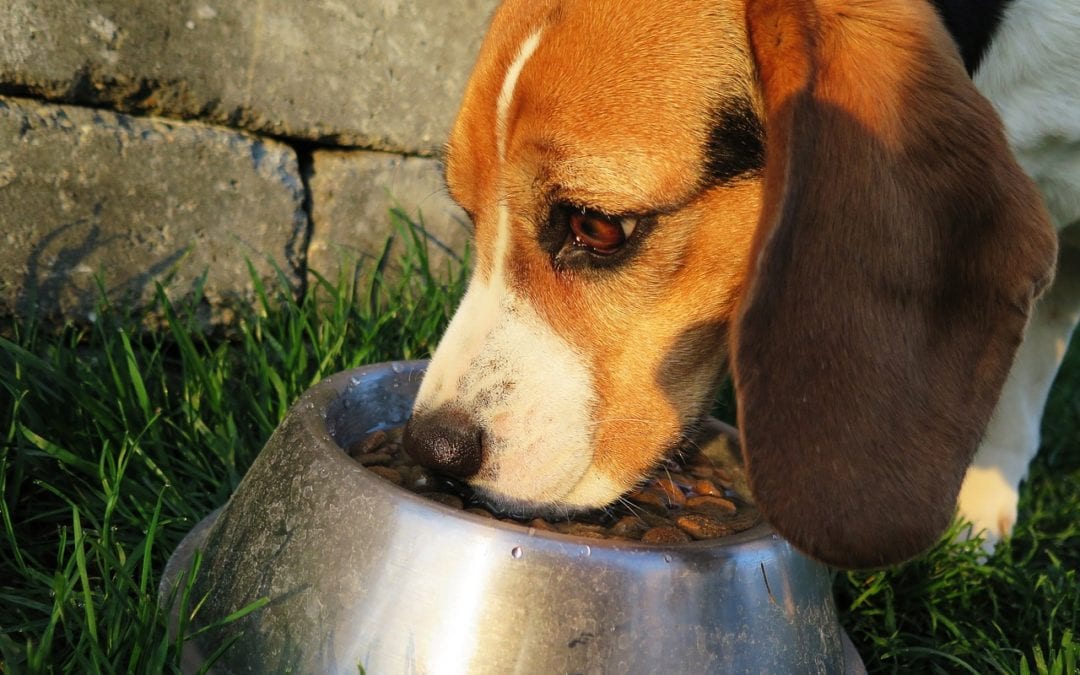As most any pet owner will attest too, the pet food aisle at your local market can be a daunting place. Special formulas and blends in a variety of flavors and fads can be found, all at varying prices. So how does the discerning pet owner know what to choose?
According to Union Lake Veterinary Hospital’s Dr. Kate Reynolds, DVM, as long as the nutrition is there, it’s all a matter of taste. Dr. Reynolds began with the team at Union Lake in 2004. Since then, she has established herself as a specialist in veterinary nutrition and has spent considerable time “boning up” on pets and nutrition. Despite her academic pedigree, Dr. Reynolds is quick to note with amusement that, “If you put three nutritionists in a room and asked them a question, you’d get at least four different answers.”
Nutrition First
Dr. Reynolds says that the first (and most) important consideration when choosing a food for your cat or dog is one that offers a complete and balanced diet of nutrients as prescribed by the Association of American Feed Control (AAFCO). The AAFCO labeling is similar to the RDA labels found on human food, and is the place to look when it comes to knowing if your pet’s food is offering a complete and balanced diet.
Ideally, a nutritionally ideal pet food will offer an age-appropriate balance of proteins (which should be higher in kitten and senior formulas), carbs, fats, vitamins, minerals, and water. As long as all these nutrients are present, the food should be considered healthy and safe.
What To Buy
Typically, according to Reynolds, the brands of Purina, Iams / Eukanuba, Royal Canin, and Hill’s Science Diet are considered to be the best on the market, as the companies have scientists and veterinary nutritionists on staff developing complete and balanced formulas, regardless of current fads or preferred flavors.
Reynolds also consults that, unless your pet has been prescribed a specialty diet for medical reasons, there are no scientific reasons to adopt the latest fads in pet food. She advises her patients to feed to their personal types. If you are happy eating mass-market food, than feed it to your pet. Likewise, if you’re absolute about eating organic, than feed organic food to your pet. Either way, as long as your pet is getting a complete and balanced diet of nutrients, he or she will be as healthy and happy as his or her food can allow.
Treats
To Dr. Reynolds, Milk Bones may as well be potato chips when it comes to nutrition. Instead, advises Reynolds, give your dog or cat a small piece of cooked chicken or turkey, or fruits and vegetables such as apples and bananas or carrots, snap peas, or green beans. Not only will your pets prefer these treats (after they have gone through their Milk Bone withdrawals), but these treats are more healthful and provide better nutrition for your pet as well.
Human Food
Unlike many absolutists, Dr. Reynolds sees no particular problems with human foods, as long as they are safe and in moderation. Foods such as cooked chicken or turkey and fruits and veggies (see above), as well as small amounts of cheese, cooked eggs, and baked breads are also acceptable.
Reynolds also advises knowing what foods are harmful to pets and avoiding them all together. Grapes and raisins are toxic to dogs, and onions and garlic, as well as chocolate and macadamia nuts are toxic to both dogs and cats. Likewise human foods high in saturated fats such as cheeseburgers and grilling fats and gristle are on the no-no list as well. Reynolds also advises being certain that meats are thoroughly cooked, as pets can contract food borne illness, just like us.
If you have other questions or concerns about your pet’s nutrition, or if you would like to schedule a consultation with Dr. Reynolds, please contact us. We’re happy to help.

